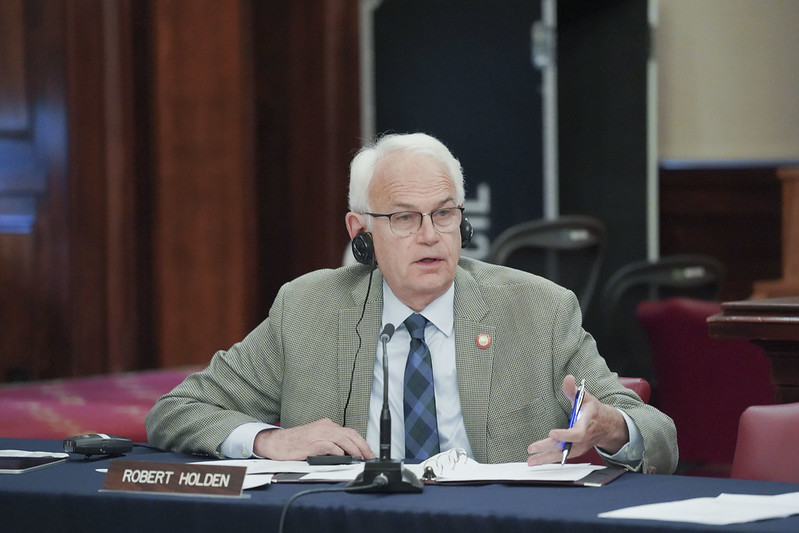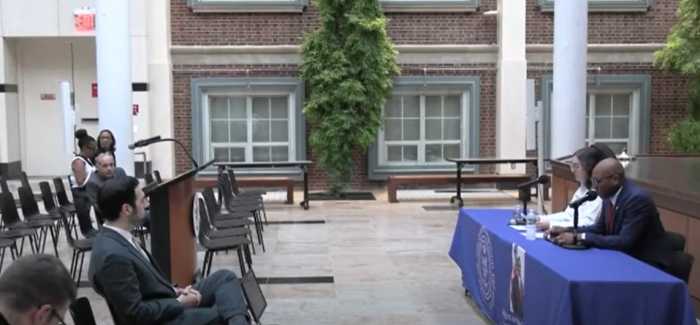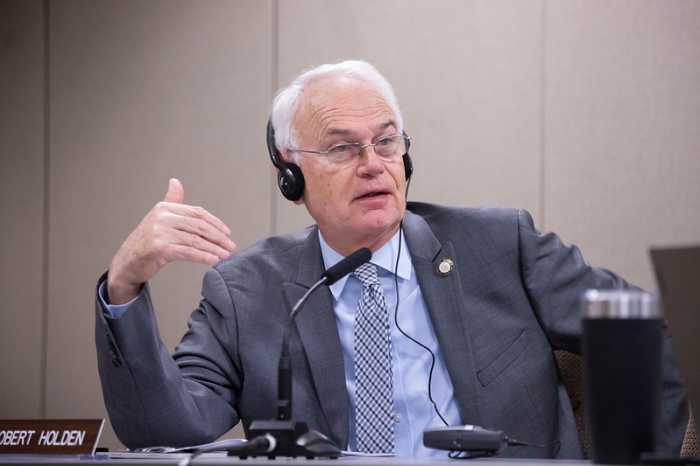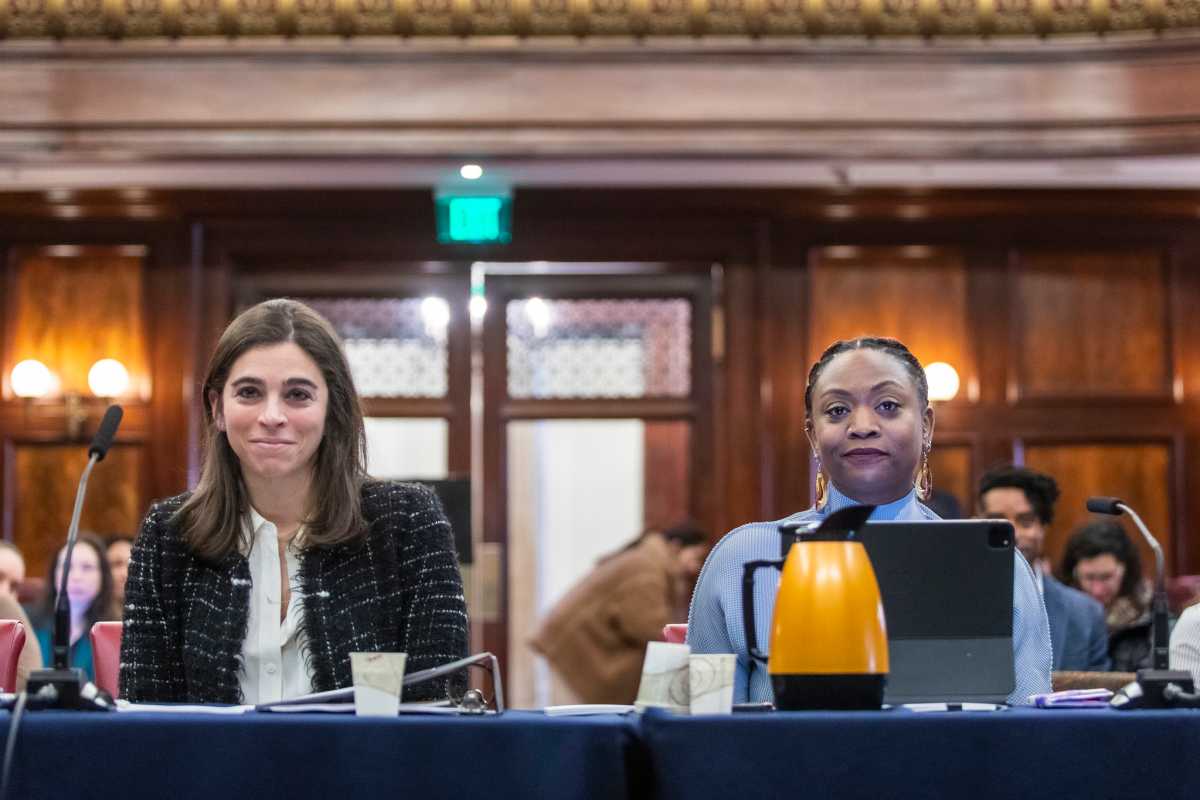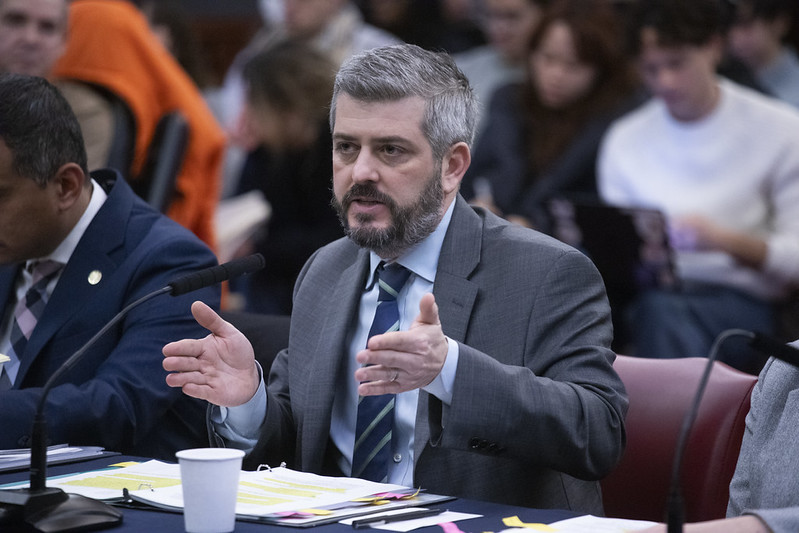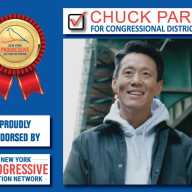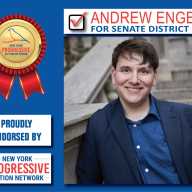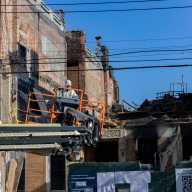Council Member Robert Holden has strongly criticized the city’s Charter Revision Commission (CRC) after the commission outlined a series of proposals that would “fast track” affordable housing across the city and “simplify” reviews of housing and infrastructure projects in an interim report released at the beginning of July.
Holden, who represents the 30th district, which includes the neighborhoods of Glendale, Maspeth, Middle Village and Ridgewood, described the CRC’s proposals as “the City of Yes on steroids” and a “deliberate effort to bypass local democracy,” accusing the commission of catering to special interests.
The CRC, which convened last December to review the entire City Charter and identify ways to improve city government, has proposed five separate amendments addressing issues such as housing and land use, and elections and voter turnout.
The amendments, which will be put to voters in November, include efforts to fast-track affordable housing by creating new zoning laws for publicly financed affordable housing developments. Meanwhile, one amendment aims to simplify the review of modest housing and infrastructure projects by creating a “streamlined” procedure for projects that will add modest amounts of public housing and create infrastructure that protects New Yorkers from flooding.
A third amendment aims to “strike a better balance between local, borough and citywide views in the Land Use Process” by eliminating the Mayor’s power to veto certain land use actions by the City Council and replacing it with a new Appeals Board made up of the City Council Speaker, Borough President and Mayor.
The final two amendments aim to boost participation in local elections by moving local elections to the same year as presidential elections and establishing open primaries for city elections in which all voters and all candidates participate, regardless of party membership. The top two candidates would then advance to the general election.
In testimony to the CRC, Holden strongly criticized the commission over the proposals, particularly the three amendments related to housing and zoning codes.
He described the proposals as “one of the most dangerous attempts to dismantle local control and community voice” that he has seen in decades. He compared the proposals to Mayor Eric Adams’ City of Yes, a series of zoning text amendments in aimed at addressing the city’s housing shortage and fostering economic opportunity.
“This Commission is trying to hand developers a blank check while cutting elected Council Members and everyday New Yorkers out of the process entirely,” Holden said in a statement.
He described efforts to fast-track affordable housing through new zoning laws as “forced upzoning under the guise of affordability,” adding that the measure does not account for transit, infrastructure, or “real affordability.”
A CRC official said the fast track proposal in the interim report would direct the City Planning Commission to consider a land use application’s consistence with the Fair Housing Framework, a measure unanimously passed by the Council that addresses issues such as infrastructure, transit access and depth of affordability.
Holden said the second proposed amendment, which simplifies the review of modest housing projects, would allow for “dense development in low-density areas, gutting long-standing zoning protections.”
He said efforts to create an Appeals Board would create an “unelected” authority with the power to override City Council decisions on land use. The CRC noted that the offices of mayor, borough president and council speaker are all elected positions.
“These measures would fundamentally reshape our city by empowering bureaucrats and politically connected developers instead of the communities that live here,” Holden added. “If the City of Yes was the opening salvo, this is the full-scale invasion.”
In a separate letter to the CRC, Holden said the Appeals Board would eliminate “one of the last remaining checks on unchecked development.”
Holden further criticized the CRC for declining to put New York’s sanctuary city laws or the slated closure of Riker’s Island on the ballot this November, stating that New Yorkers are being “denied a voice on two of the most consequential public safety issues of our time.”
“City Hall knows the public wants change, so they’ve chosen to bury the question. That’s not democracy—it’s manipulation.”
Holden also backed a proposal by Council Member Frank Morano and members of the Common Sense Caucus to give council members binding appointment power over Community Boards, citing the inclusion of borough presidents in the proposed Appeals Board.
“If Borough Presidents are being given more authority over land use, Council Members must have a real say in how Community Boards are shaped.”
CRC spokesperson Casey Berkovitz rebuffed Holden, stating that the commission was convened last December to address an “urgent” housing crisis facing New Yorkers. He also noted that the CRC published its interim report after extensive public engagement and testimony across the five boroughs.
“That is exactly what the proposals outlined in our interim report would do,” Berkovitz said. “Building on extensive public testimony at hearings across the five boroughs and the consensus of housing experts from across the city and country, these potential reforms would balance public input, democratic accountability, and the urgent need for affordable housing.”
City Hall officials also resisted Holden, stating that the CRC is an independent body that makes determinations based directly on what it hears from New Yorkers.
“Hundreds of New Yorkers testified, and the commission heard over 26 hours of testimony and acted based on that feedback,” a City Hall spokesperson said.
“Mayor Adams convened this commission to review how the City Charter can address the city’s housing crisis — in conjunction with the record amounts of affordable housing being created by the Adams administration — and New Yorkers will be able to decide on all of these proposals in November.”
City Hall officials noted that any Council Member who would like to change the law can do so by working with their colleagues in the council.

